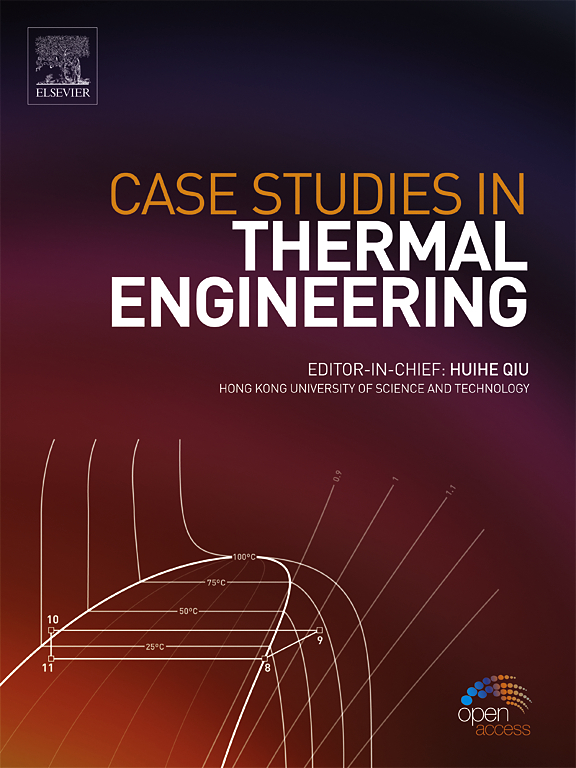Energy and exergy analysis of pulse detonation combustor and pulse detonation turbine engine cycle
IF 6.4
2区 工程技术
Q1 THERMODYNAMICS
引用次数: 0
Abstract
As a kind of pressurized combustion, pulse detonation combustion brings many possibilities for the improvement of aero-engine performance.In this paper, energy and exergy analyses of pulse detonation combustor (PDC) and pulse detonation turbine engine (PDTE) cycles based on unsteady analysisare conducted. A simplified exergy flow model is proposed to describe the exergy flow of PDC under different inlet conditions, and based on this, the exergy efficiency of PDC is compared with that of an isobaric combustion chamber. In addition, the energy and exergy flows of ideal and real PDTE cycles are analyzed, and the cycle thermal and exergy efficiencies under different inlet conditions are obtained. The results show that the exergy efficiency of PDC is higher than that of an isobaric combustion chamber from an inlet pressure ratio of 3–45, but the efficiency improvement decreases from 13.2 % to 7.2 %. The thermal efficiency of the ideal PDTE cycle is higher than that of the Brayton cycle, but the efficiency improvement decreases from 78.2 % to 4.7 %. The irreversible losses in the real process will lead to energy loss during compression and expansion processes in the PDTE cycle, thus reducing its exergy efficiency and thermal efficiency.
脉冲爆燃燃烧器和脉冲爆燃涡轮发动机循环的能量和放能分析
本文基于非稳态分析对脉冲爆燃燃烧器(PDC)和脉冲爆燃涡轮发动机(PDTE)循环进行了能量和放能分析。提出了一个简化的放能流模型来描述 PDC 在不同入口条件下的放能流,并在此基础上将 PDC 的放能效率与等压燃烧室的放能效率进行了比较。此外,还分析了理想和实际 PDTE 循环的能量流和放能流,并得出了不同入口条件下的循环热效率和放能效率。结果表明,在入口压力比为 3-45 的条件下,PDC 的放能效率高于等压燃烧室,但效率提高幅度从 13.2% 降至 7.2%。理想 PDTE 循环的热效率高于布雷顿循环,但效率提高率从 78.2% 降至 4.7%。实际过程中的不可逆损失将导致 PDTE 循环在压缩和膨胀过程中的能量损失,从而降低其放电效率和热效率。
本文章由计算机程序翻译,如有差异,请以英文原文为准。
求助全文
约1分钟内获得全文
求助全文
来源期刊

Case Studies in Thermal Engineering
Chemical Engineering-Fluid Flow and Transfer Processes
CiteScore
8.60
自引率
11.80%
发文量
812
审稿时长
76 days
期刊介绍:
Case Studies in Thermal Engineering provides a forum for the rapid publication of short, structured Case Studies in Thermal Engineering and related Short Communications. It provides an essential compendium of case studies for researchers and practitioners in the field of thermal engineering and others who are interested in aspects of thermal engineering cases that could affect other engineering processes. The journal not only publishes new and novel case studies, but also provides a forum for the publication of high quality descriptions of classic thermal engineering problems. The scope of the journal includes case studies of thermal engineering problems in components, devices and systems using existing experimental and numerical techniques in the areas of mechanical, aerospace, chemical, medical, thermal management for electronics, heat exchangers, regeneration, solar thermal energy, thermal storage, building energy conservation, and power generation. Case studies of thermal problems in other areas will also be considered.
 求助内容:
求助内容: 应助结果提醒方式:
应助结果提醒方式:


